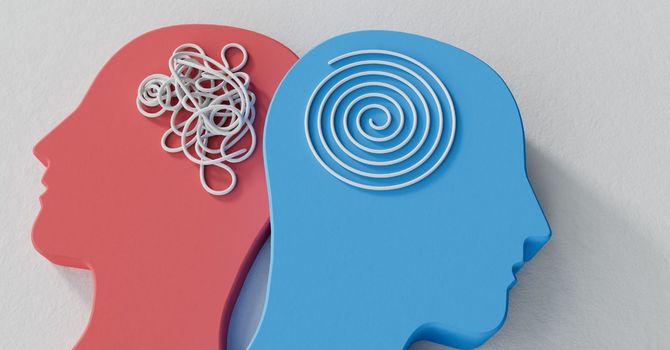
Our children have many more wonderful opportunities for their future than previous generations. One such opportunity is that more students are pursuing post-secondary studies. An unexpected consequence of this opportunity is the pressure our adolescents experience to perform well, as early as Grade Nine, to prepare for their future post-secondary endeavors. Subsequently, adolescents are faced with stress that they may not be prepared to handle because of limited life experience and coping strategies. As a consequence to this, anxiety challenges can begin to develop.
Anxiety is natural and normal in testing situations and a moderate level of anxiety actually supports our ability to perform at our best. However, when anxiety becomes too intense it can begin to negatively impact performance by causing the student to sleep poorly the night before, “blank out” during the test, or focus on their anxious thoughts rather than on the test material. Overcoming these challenges is easier said than done! Many students do not know how to cope with test anxiety and continue to not reach their potential on tests. Therefore, the following strategies are offered to support students with test anxiety (Study Guides and Strategies, n.d.):
- Be prepared! Learn your material thoroughly and organize what items (e.g., pens, calculator, paper, etc.) you will need for the test. Remember that better recall occurs when you study over several days for shorter periods of time rather than studying in one long session.
- Get a good night's sleep. Make sure to go to bed early so you have enough energy to complete the exam well. Often people who stay up late or pull an “all-nighter” lose their focus during exams because they are tired.
- Don't go to the exam with an empty stomach. Eat healthy on the day of, and leading up to, the exam. Nothing is worse than being hungry in an exam and losing focus because of it.
- Exercise before the exam. Exercise is a proven method to calm the mind and increase focus. Even 20 minutes of vigorous exercise supports focus.
- Arrive early to the test. Arriving early will allow you to have time to calm down and recite your confidence boosting script, “I have studied for the exam and will do well.”
- Strive for a relaxed state of concentration before the test. Avoid speaking with any fellow students who have not prepared, who express negativity, and who will decrease your confidence.
- Approach the exam with confidence. Remind yourself about the hard work that you have put in for studying and view the exam as an opportunity to show how much you have prepared.
- If allowed, take a small snack and water into the exam. Eating a healthy snack and drinking cool water can reduce anxiety by grounding the body. It is also easier to focus when you are not hungry or thirsty.
- Choose a comfortable location for taking the test. This may be difficult if you are writing in a gym or a large auditorium, but choose a spot with good lighting and minimal distractions (e.g., near the back of the gym away from the doors).
During the test (Study Guides and Strategies, n.d.):
- Read the directions carefully
- Budget your test-taking time
- Change positions to help you relax
- If your mind goes blank, skip the question and go on to another question; mark it so you remember to go back to it
- If you're taking a test based on an essay question and you go blank on the whole test, pick a question and start writing – it may trigger the answer to the essay question in your mind
- Remember that there is no reward for finishing first, so try to remain calm and focused when students start handing in their tests
Other calming strategies include (Study Guides and Strategies, n.d.):
- Take slow deep breaths; breathe in to a count of four and breathe out to a count of four
- While breathing in tighten your muscles and while breathing out relax your muscles
- Remind yourself that some anxiety is normal and beneficial, and then re-focus on the questions
After the test, review how you did (Study Guides and Strategies, n.d.):
- List what worked – it does not matter how small the strategies are, they are building blocks for success
- List what did not work
- Celebrate that you are on the road to overcoming test anxiety
What happens, though, if the test anxiety is so intense that typical strategies do not work? When test anxiety is this intense, it may be because the student has developed negative core beliefs about themselves. Examples of negative beliefs include I am not good enough, I am defective, I am inferior, I am stupid, I am a failure, I am always one-below, I am powerless, etc. Often these beliefs are triggered by testing situations and result in the student feeling anxious and panicked. If you or your child strongly identifies with these negative core beliefs, then counselling that utilizes Cognitive Behavioural Therapy (CBT), for example, may be beneficial.
The underlying principal of CBT is that our thoughts, feelings, and behaviors have a reciprocal effect on each other. For example, if I think that I will fail (automatic thought) because of the core belief that “I am defective,” then I am more likely to become anxious and not do well on the exam. CBT addresses the automatic thoughts that stem from our core beliefs, and provides behavioural strategies that promote more adaptive thoughts and feelings. When these cognitive and behavioural strategies are applied to test-taking, one of two things tends to happen – the testing situation may no longer trigger an automatic thought because the core belief has been changed, or the student learns cognitive and behavioural strategies to tackle the automatic thoughts and core beliefs that are still triggered in an exam. Either way, the student has reduced anxiety and can perform to their potential on tests.
If you would like to explore whether CBT or another form of therapy may be a good fit for you or your child, please contact Darlene at info@eckert-psychology.com or call her at extension 33.
Michelle is a Registered Psychologist providing assessment and counselling services at Eckert Centre. Michelle makes a unique contribution to the Centre by her supervisory role of our Intervention Services which provides coaching services and brain training programs to individuals with learning disabilities, developmental disabilities, social, and/or behavioural challenges, and their families. This experience, combined with her assessment and counselling training, has created a dynamic combination of knowledge, skills and experience. She also provides academic counselling to those with Learning Disabilities and/or AD/HD.

Michelle Kerslake
Registered Psychologist, Clinic Director – Assessment & Educational Services
Contact Me


